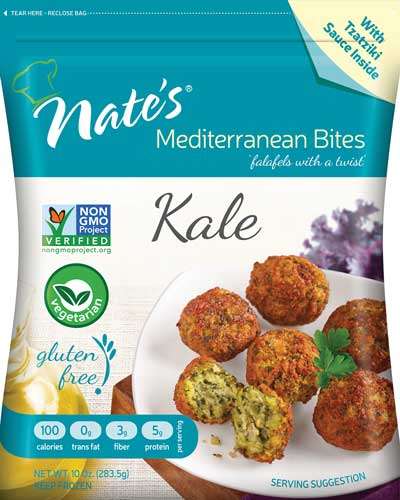Vegetarian foods are positioned for success in the marketplace as public health advocates highlight the benefits of plant-based diets and a growing number of consumers embrace meat-free or meat-reduced lifestyles. Earlier this year, for example, the 2015 Dietary Guidelines Advisory Committee (DGAC) report included adopting a vegetarian diet among its recommended approaches to healthful eating. So it's hardly surprising that mainstream food industry brands like Boca from Kraft Foods, Northfield, Ill., and MorningStar from Kellogg Co., Battlecreek, Mich., are expanding their offerings in order to increase market share and appeal to a greater consumer base.
In describing the DGAC report's unprecedented vegetarian-focused advice, co-author Frank Hu, a professor of nutrition and epidemiology at the Harvard T.H. Chan School of Public Health, says, "It's a breakthrough that would cause a paradigm shift in eating patterns with an increase in demand for healthy, plant-based packaged foods and meals in restaurants." An expected rise in the number of people seeking to eat less animal-based food on health or sustainability grounds can also be regarded as an opportunity for manufacturers of vegetarian packaged foods, Hu said.
The DGAC report was welcome news for Nancy Chapman, registered dietitian and executive director of the Soyfoods Assoc. of North America. "The report offered suggestions on increasing plant-based foods and includes soy among the sources of plant protein throughout the document," she says. Along with other sources of plant-based protein—such as pulses, nuts, and seeds—soy protein stands out as an ingredient with a great deal to gain from consumer trends moving toward meat-reduced and meat-free diets.
To be sure, more consumers in industrialized nations like the United States are adopting vegetarian diets than ever before. In part they're making the switch due to health, ethical, and environmental concerns. But another reason is that the food industry's technological developments have made an impact by offering a greater variety of vegetarian prepared foods—in the form of shelf-stable, refrigerated, and frozen products, making them more available and accessible, and also bringing about improvements in taste and texture.
"In the early stages, products that have been developed might have been lacking texture and flavor, but as technologies are evolving and new ingredients are being developed, new products have significantly improved and are more appealing to a larger base of consumers," says Agnes Jones, savory marketing manager for Ingredion, Westchester, Ill.
Vegetarian Foods Market Size
In the United States, younger consumers are leading the way in adopting vegetarian diets. Based on SPINS survey data, Mintel estimates that some 13% of Millennials describe themselves as vegetarian (9%) or vegan (4%), which is more than any other generational demographic. In comparison, only 5% of Generation X consumers and not more than 2% of Baby Boomers and the Swing Generation consider themselves vegetarians. Of all respondents, a total of only 7% consider themselves vegetarian (5%) or vegan (2%), according to Mintel's January 2015 The Protein Report—Meal Alternatives.
Millennials are also the most frequent consumers of meat alternatives, while older consumers—who may have most to gain in terms of heart health—tend to ignore them. Mintel reports that roughly a quarter of the younger demographic are turning to the products at least a few times a week, while 90% of the Swing Generation and 75% of Baby Boomers say they never consume meat alternatives aside from eggs. The vast majority of the two groups of older consumers (69%) say they prefer real meat versus meat substitutes, although 38% and 39%, respectively, say they are likely to eat less meat for heart health. In addition, a quarter of Millennials, 24% of Generation X, and 18% of both Baby Boomers and the Swing Generation report that they're looking for protein from sources other than meat, such as from tofu, beans, nuts, or eggs.
Rapidly changing consumer trends, however, have made forecasting the actual market growth of vegetarian foods a little tricky. Historically, unreliable trend data has made it difficult to predict just how many consumers will adopt vegetarian diets, Euromonitor reports in a 2011 briefing titled "The War On Meat: How Low-meat and No-meat Diets Are Impacting Consumer Markets." For example, a survey by Vegetarian Times found that more than 5% of non-vegetarians say they are "definitely interested" in following a vegetarian-based diet, which suggests another 12 million U.S. consumers.
Provided by Institute of Food Technologists






















